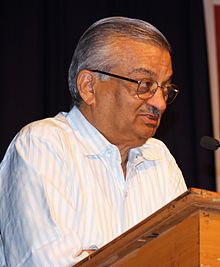User Ideas / Prospects
India has been home to numerous visionary engineers, scientists, and technologists who have contributed significantly to the nation's development. Here’s a list of other notable individuals who have dedicated their lives to engineering and technology-based development in India:
1. Dr. A.P.J. Abdul Kalam (1931–2015)
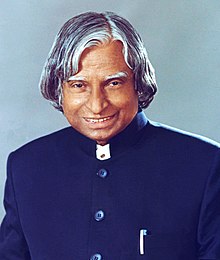
- Contributions: Known as the “Missile Man of India,” Dr. Kalam played a key role in India’s missile development programs, including AGNI and PRITHVI missiles. He also contributed to India’s nuclear program and the Pokhran-II nuclear tests in 1998.
- Role: He served as the 11th President of India (2002–2007) and was instrumental in advocating for India’s self-reliance in defense technologies.
- Legacy: His work in aerospace engineering and defense research continues to inspire engineers and scientists across the country.
2. Dr. Vikram Sarabhai (1919–1971)
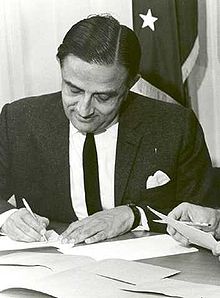
- Contributions: Often regarded as the father of India’s space program, Dr. Sarabhai was the founder of the Indian Space Research Organisation (ISRO). He was instrumental in developing India’s first satellite, Aryabhata, and initiating India’s space exploration journey.
- Role: He emphasized the importance of space technology for the socio-economic development of India, pioneering remote sensing and satellite communications for India’s progress.
- Legacy: His vision laid the foundation for India becoming a global player in space exploration.
3. E. Sreedharan (b. 1932)
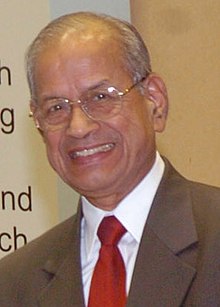
- Contributions: Known as the "Metro Man of India," Sreedharan played a pivotal role in revolutionizing urban transportation through the Delhi Metro project, which became a model of public transportation infrastructure in India.
- Role: He led several key projects, including the Konkan Railway and various other metro systems in cities like Kochi and Lucknow.
- Legacy: His work is hailed for its timely execution and cost efficiency, transforming the mass transit systems in Indian cities.
4. Satish Dhawan (1920–2002)
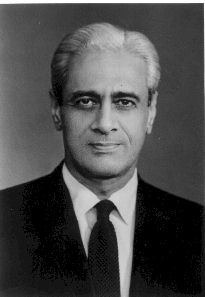
- Contributions: Satish Dhawan succeeded Vikram Sarabhai and was the third Chairman of ISRO. Under his leadership, ISRO made remarkable progress, including the successful Aryabhata satellite launch and subsequent space missions.
- Role: He promoted self-reliant space technology, focused on satellite launch vehicles like SLV and PSLV, and developed India’s space capabilities.
- Legacy: The Satish Dhawan Space Centre in Sriharikota is named in his honor, signifying his contributions to India's space success.
5. Dr. M. Visvesvaraya (1861–1962)

- Contributions: As mentioned earlier, Sir M. Visvesvaraya made lasting contributions to infrastructure development, including water management, dams, and the promotion of technical education in India.
- Legacy: His legacy is marked by the establishment of dams and irrigation projects that still benefit the nation today. He is commemorated every year on Engineers' Day.
6. Dr. Homi J. Bhabha (1909–1966)
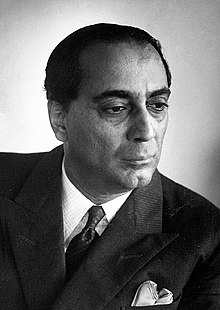
- Contributions: Dr. Bhabha is known as the father of India’s nuclear program. He was the key architect of India's atomic energy program and established the Bhabha Atomic Research Centre (BARC).
- Role: He initiated India’s nuclear research, laying the foundation for the country’s nuclear energy and weapons programs. His efforts enabled India to become a nuclear-capable state.
- Legacy: His pioneering work has given India the ability to harness nuclear technology for both power generation and defense purposes.
7. Verghese Kurien (1921–2012)

- Contributions: Known as the Father of the White Revolution, Kurien’s Operation Flood made India the largest producer of milk in the world. His efforts revolutionized India's dairy sector by introducing modern dairy engineering techniques.
- Role: As the founder of Amul, he created a supply chain model that empowered rural dairy farmers and transformed India into a self-sufficient dairy nation.
- Legacy: Kurien’s model continues to uplift the agricultural economy, impacting millions of lives through dairy cooperatives.
8. Dr. G. Madhavan Nair (b. 1943)
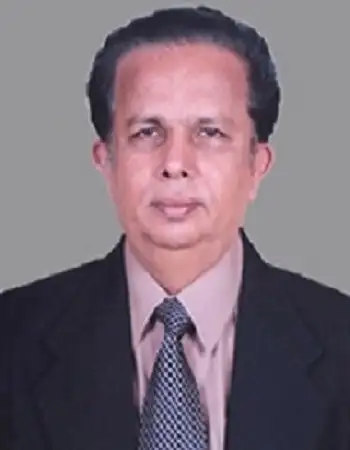
- Contributions: Dr. Nair served as the Chairman of ISRO and led many successful missions, including the Chandrayaan-1 mission in 2008, which discovered water molecules on the Moon’s surface.
- Role: He also led the successful launch of 11 satellites in a single mission and developed the Geosynchronous Satellite Launch Vehicle (GSLV) program.
- Legacy: His contributions have helped India’s space research soar to greater heights, making ISRO a global player in space exploration.
9. Dr. M. S. Swaminathan (1925-2023)

- Contributions: Considered the Father of the Green Revolution in India, Dr. Swaminathan played a crucial role in agricultural engineering by developing high-yielding varieties of wheat and rice, which helped India overcome famine-like situations and become food self-sufficient.
- Role: He focused on agricultural technology and scientific farming methods, which significantly increased India’s food production.
- Legacy: His efforts have led to improved food security in India, saving millions from hunger and transforming the agricultural landscape.
10. Sam Pitroda (b. 1942)

- Contributions: Sam Pitroda is known as the pioneer of India’s telecommunications revolution. As an advisor to Prime Minister Rajiv Gandhi, he was instrumental in laying the foundation of India’s telecom and IT industry.
- Role: He established the Center for Development of Telematics (C-DOT) and played a key role in the development of India’s telecom infrastructure, including the introduction of public call offices (PCOs) in rural India.
- Legacy: His contributions have helped propel India into the information age, making telecommunications accessible to millions across the country.
11. Dr. Anil Kakodkar (b. 1943)
- Contributions: A prominent nuclear scientist, Dr. Kakodkar was instrumental in India’s nuclear energy development. He served as the Chairman of the Atomic Energy Commission of India and oversaw several significant nuclear projects.
- Role: He played a key role in India’s 1998 nuclear tests (Pokhran-II) and the development of nuclear reactors for peaceful energy generation.
- Legacy: His leadership in nuclear research and energy policy has made India a prominent player in the global nuclear energy sector.
12. Dr. Raghunath Anant Mashelkar (b. 1936)

- Contributions: Dr. Mashelkar is a renowned chemical engineer and former Director-General of the Council of Scientific and Industrial Research (CSIR). He promoted innovation, patents, and intellectual property rights (IPR) for Indian scientific research.
- Role: He played a crucial role in shaping science and technology policies in India and advocated for inclusive innovation to benefit the common people.
- Legacy: His contributions to scientific research and innovation policy continue to impact industrial growth and technological progress in India.
13. Dr. Rajagopala Chidambaram(b. 1943)
- Contributions: His work in designing and developing the nuclear devices tested during Pokhran-II was a landmark achievement in India's defense and scientific history.
- Role: He played a crucial role in He played a crucial role as the Chairman of the Atomic Energy Commission of India and was the Chief Scientific Adviser to the Government of India during this period..
- Legacy: He served as the head of the Atomic Energy Commission of India, overseeing India's atomic energy research and policy. Principal Scientific Adviser to the Government of India: Dr. Chidambaram served as the Principal Scientific Adviser (PSA) to the Government of India, a prestigious role in which he guided national policies on science, technology, and innovation. Director of Bhabha Atomic Research Centre (BARC): Before becoming Chairman of the Atomic Energy Commission, he was the Director of BARC, one of India’s leading nuclear research centers. Under his leadership, BARC expanded its research and technological contributions in nuclear energy and defense. Dr. Rajagopala Chidambaram is regarded as a key architect of India's nuclear program, contributing both to its strategic defense capabilities and nuclear energy development. His leadership in the Pokhran-II tests and his commitment to scientific research have made him a towering figure in Indian nuclear science and policy.
His advocacy for self-reliance in technology, his contributions to scientific development, and his leadership in nuclear physics have left an indelible mark on India's strategic and scientific landscape.
- Contributions: Mr. Dilip Asbe is the MD & CEO of National Payments Corporation of India (NPCI). Prior to this he was the Chief Operating Officer (COO) of NPCI. He has played a pivotal role in designing, building, operationalisation and management of large scale innovative payments processing platforms like Unified Payments Interface (UPI), Bharat Interface for Money (BHIM), Immediate Payment Service (IMPS) and India’s home grown card network RuPay.
- Role: A formidable leader to the core, he has ensured the delivery of processing over 1 billion transactions a month with good mentoring of teams. Recently, he was awarded the ‘Changemaker of the Year’ award for the revolutionary product UPI which he spearheaded, by one of the leading business dailies. Further, very recently he was awarded the ET award 2018 for Policy Change agent of the year award for UPI.

- Contributions: Vishal Kanvaty serves as the Chief Technology Officer at National Payments Corporation of India (NPCI), where he has made significant contributions over the past 7+ years. Notably, he played a crucial role in developing the highly scalable mobile payment platform, Unified Payments Interface (UPI).
- Role: Vishal has been instrumental in developing AI-driven models that effectively mitigate fraud in the payments industry. Additionally, he has been leading the Distributed Ledger Technology (DLT) initiatives at NPCI, further solidifying his position as a pioneer in the field of payments technology.
- Contributions: With over 30 years of experience in the IT sector, Saiprasad’s expertise spans various high-impact roles across prominent organizations. Before joining NPCI, he was a key contributor at Dena Bank, managing critical IT operations and leading significant projects. His career also includes notable tenures at Unit Trust of India Technology Services Ltd. and Piramal Technology Systems, where he played a crucial role in transformative technology solutions and systems management.
- Role: Mr. Saiprasad Nabar joined the National Payments Corporation of India (NPCI) on October 7, 2011, as the Head ofNFS Applications & Switching Technology. He currently serves as the Chief Platform Officer, playing a vital role in driving technological advancements and strategic platform initiatives essential to NPCI’s mission of enhancing India’s digital payments ecosystem.
These pioneers have made remarkable contributions to engineering and technology in India, helping to transform the nation in various sectors, including space, nuclear energy, transportation, agriculture, telecommunications, and public infrastructure. Their legacies continue to shape India's progress toward becoming a global leader in innovation and technology.
Note:- This order is just i put as I able to remind names not in order of measurement of contribution.
